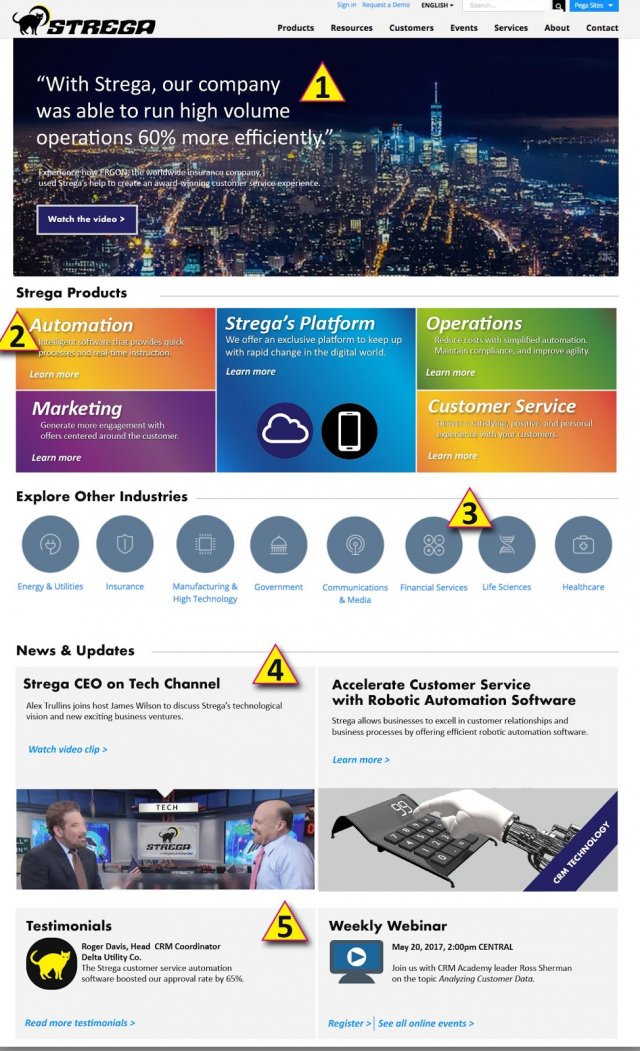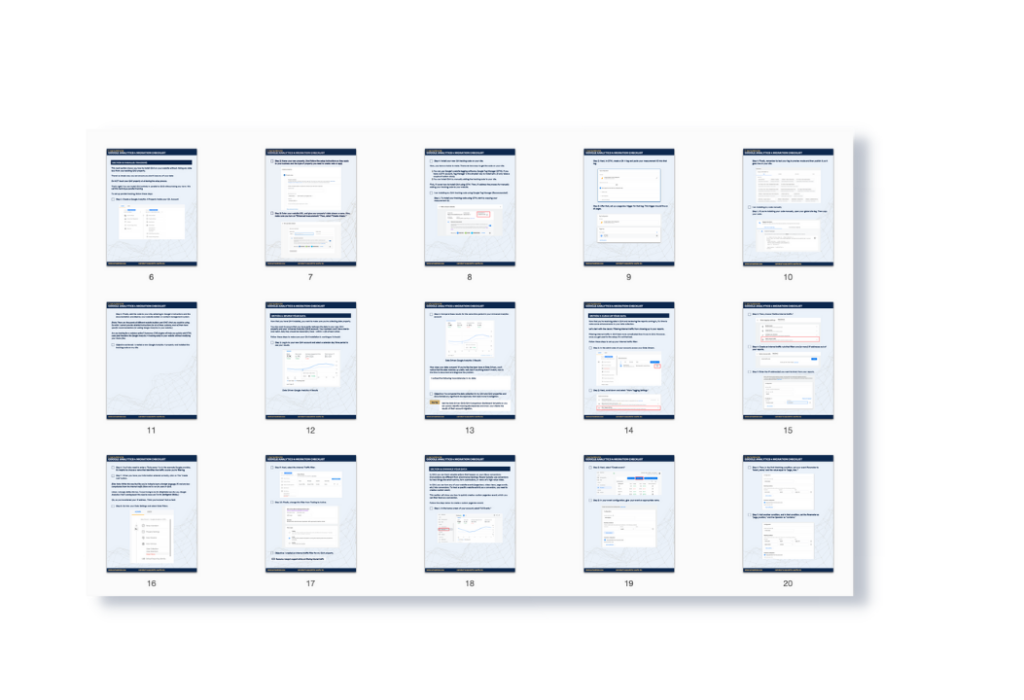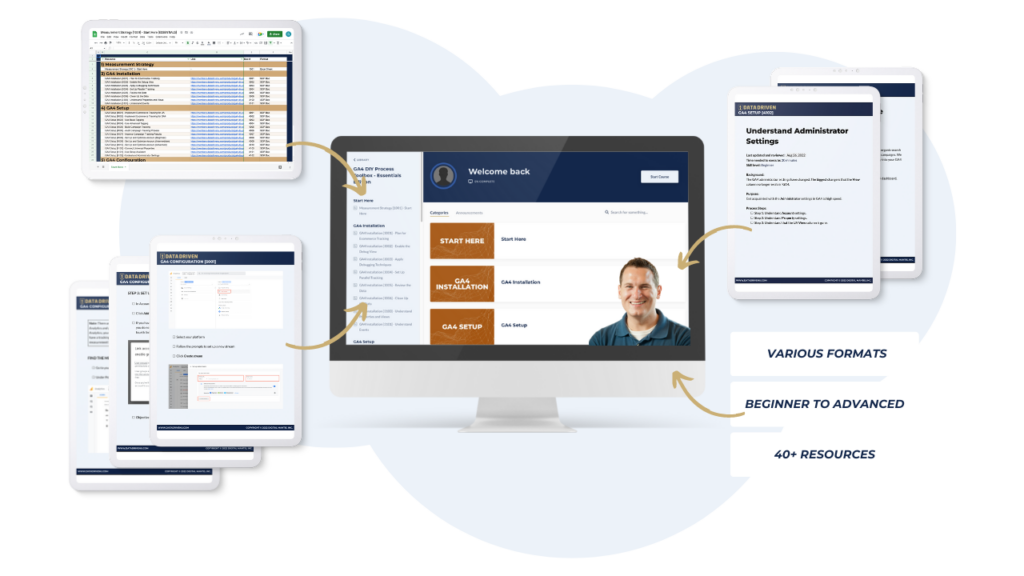One of the primary considerations for implementing personalization is: What is the most efficient investment of my resources? What type of personalization makes the most sense for my company’s needs?
Even with the help of AI and automated algorithms, creating personalization campaigns is an investment of time and money. Matching your strategy to your business model, scale, and market is therefore essential. For B2B companies, and others with smaller, more high-value segments, the more typical and broad implementation usually employed by e-tailers may not be the most effective.
Taking a highly targeted approach and marketing to a small number of clients is an emerging strategy known as Account-Based Marketing (ABM), and it has been demonstrated by market research to have a reliably higher ROI than other online marketing methods in B2B, and other industries where individual clients represent a higher value sale.
When it comes to personalization, an ABM strategy means taking a precision approach: deeper data, smaller segments, sometimes even specific versions of your landing page(s) for individual clients. It also means less focus on new visitors to the site, or those who you don’t know as much about, and a concentration of resources on high-value clients you know well.
Expanding your customer knowledge for ABM Personalization
Acquiring as much useful data as possible is one of the key elements of quality personalization, and any worthwhile personalization engine is collecting a variety of IP, referral, and behavioral tracking data, by default.
However, if you’re using the ABM method, there is another critical source of data that includes many parameters typically unavailable to the default mechanisms, and that is your CRM database.
Critical information that may be found in your CRM DB can include:
- Role in the company, to provide relevant CTAs and promotions – If you know that the visitor is part of the IT team of the company, it’ more relevant to show them more technical information, whereas the CEO may be more interested in seeing cost-effectiveness and the bottom-line.
- Account status, such as a prospect or lead – Knowing the stage in the sale could determine whether to offer demos, discuss pricing, and whether to email or call the customer. If an active customer, offer upgrades and create customer retention.
- Industry of the visitor, to show relevant promotions, testimonials, and use cases – If we know the industry of a client, we can provide case-studies that involve existing clients from that industry, to create a sense of trust in the company as a provider in the space.
- Company size can be very relevant for understanding specific customer needs – This type of knowledge allows your marketing to be highly targeted, to speak the client’s language, and establish the groundwork for closing the deal.
Starting with the fundamental CRM profile, additional behavioral tracking and referral data can give you more insight into prospect interests, or existing client needs for other products, based on which pages they viewed, for how long, where they clicked, how they arrived, etc.
How is CRM integration accomplished?
There are a variety of methods for different needs, and also types of databases. Integrating an internal DB may be different from integrating with a 3rd party service like Salesforce; a quality personalization solution will offer multiple options.
However you integrate, the key is to get the user data into your personalization engine’s customer profiles, link those customer profiles to the leads visiting your site, and adapt your landing page to their specific qualities.
Case Study
Strega Software Solutions, a B2B software provider, is employing an ABM marketing strategy, due to the fact that they serve a relatively small number of key accounts within various industries. In this example, we’ll see how one such visitor is delivered a tailored and engaging experience on Strega’s site, via CRM-integrated personalization.
Meet Susan:
- Operations Manager at utilities company
- Searching for: Automation software for customer service
- Not a decision maker, but one level below
- Previous customer, influenced company to use Strega for marketing automation software
Before personalization, Susan would have seen the same landing page as everyone else, when she arrived at the site. However, because Strega already knows Susan through her CRM information, and this data profile has already been linked to her work IP, she sees a unique landing page tailored to her interests and role, immediately.

Because Strega is taking an ABM approach in their B2B marketing, they have placed concentrated effort into showing specific promotions and CTAs to individuals based on their role in the company, as well as whether or not they are a decision-maker. Additionally, because Susan arrived at the landing page via an ad campaign related to customer service automation, the personalization engine also recognizes this as a current or primary interest.
In Susan’s case, when she lands, the site is immediately tailored to her specific interests and industry:
- Banner features a testimonial quote from a utilities company
- Suggested product categories are all related to her established and new interests
- Energy and utilities is moved to the first slot in industries
- Suggested news include an interview with a decision-maker (CEO), and a post about customer service automation
- Testimonial at the bottom is related to a customer service automation product
After being alerted to her interest, an accounts manager is automatically notified that she is browsing the site, and a webhook automatically triggers a personalized email, further pushing for a demo, and also including offers for upgrades to previously purchased software, which can be included in the bundle for a reduced rate.
This is just one example of the type of targeted account based marketing that is possible with the aid of personalization informed by CRM data. When there is significant revenue on the line, knowing your customers or clients intimately, and maximizing the relevance of their experience on your site is guaranteed to drastically increase the likelihood of conversion, and to generate increased revenue for your company. Third-party SaaS personalization solutions are now making this available not only to huge corporations, but all scales of online business.


